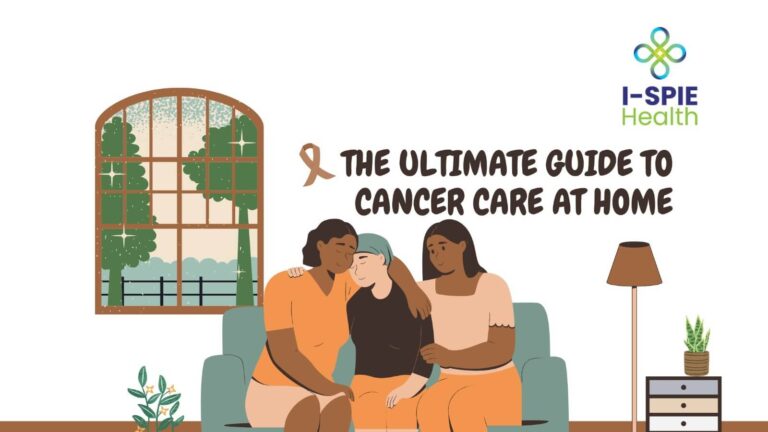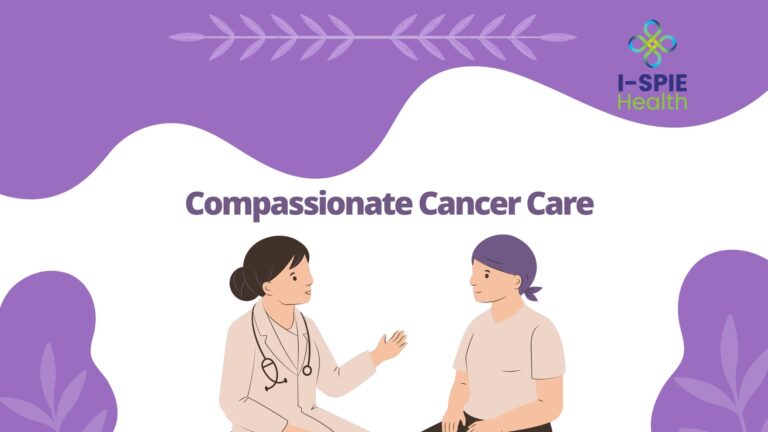Navigating a cancer diagnosis presents profound challenges that extend beyond physical symptoms. The emotional impact can be overwhelming, requiring a multifaceted approach to support. This blog explores essential strategies and Emotional Support for Cancer Patients and how patients, families, and professionals can work together to navigate this difficult journey.
Understanding the Emotional Impact of Cancer
Emotional Responses to Cancer
Cancer often triggers a complex mix of emotions. Fear of the unknown and the potential outcomes can dominate a patient’s thoughts, while anger might stem from frustration with the disease or its effects on life. Sadness may emerge as patients grieve the loss of their previous health and normalcy. Anxiety about treatment, future health, and life changes can further compound these feelings, making it crucial to address each emotion.
Impact on Mental and Physical Health
Emotional distress can manifest in physical symptoms such as fatigue, sleep disturbances, and a weakened immune system. Addressing emotional health is not just about mental well-being but also about supporting overall physical health. Proper emotional care can improve quality of life and potentially enhance treatment outcomes.
The Role of Family and Friends
1. Active Listening
Family and friends provide invaluable support through active listening. Being present and allowing patients to express their feelings without interruption or judgment can offer significant emotional relief. This empathetic engagement helps patients feel heard and understood, which is crucial for their emotional well-being.
2. Offering Practical Help
Practical assistance from loved ones can alleviate stress and provide significant relief. Helping with daily tasks such as cooking, cleaning, or transportation can ease the burden on patients. Offering to accompany them to medical appointments or handle other errands can also be greatly appreciated and beneficial.
3. Being Present
Spending quality time with the patient and participating in enjoyable activities can provide comfort and distraction from the stress of treatment. Showing consistent presence and support helps patients feel valued and less isolated, enhancing their emotional resilience.
Also Read: The Ultimate Guide To Cancer Care At Home
Professional Support Options
-
Psychologists and Counselors
Psychologists and counselors offer a structured environment where patients can explore their emotions and develop coping strategies. These professionals provide therapeutic interventions tailored to individual needs, helping patients manage the psychological impacts of cancer and navigate their emotional journey.
-
Support Groups
Support groups create a community of individuals who share similar experiences. These groups provide a platform for sharing struggles, advice, and encouragement. Participating in support groups can help patients feel less isolated and gain valuable insights from others in similar situations.
-
Oncology Social Workers
Oncology social workers assist patients in navigating the complexities of the healthcare system. They offer emotional support, counseling, and practical assistance, including connecting patients with resources and support services. Their role is integral in providing holistic care and addressing both emotional and logistical needs.
Practical Tips for Emotional Support
- Talk to Someone Who Is Not a Family Member: Talking to a therapist or counselor offers an unbiased perspective that family members may not provide. Professional support helps patients work through their emotions with someone trained to offer strategies and coping mechanisms. This external support can be essential for managing complex feelings.
- Continue With Your Daily Routine, When Possible: Maintaining daily routines can provide a sense of normalcy and stability amidst the upheaval of cancer treatment. Routine activities help patients retain a connection to their pre-cancer life, offering comfort and reducing feelings of chaos and uncertainty.
- Try to Exercise: Physical activity has been shown to improve mood and energy levels. Engaging in exercises suitable for the patient’s condition can enhance overall well-being and provide a positive distraction from the stresses of treatment. Always consult with healthcare providers to ensure exercises are safe.
- Follow a Healthy Diet: A balanced diet supports both physical and emotional health. Proper nutrition can improve energy levels, bolster the immune system, and enhance mood. Working with a nutritionist can help patients create a dietary plan that complements their treatment and promotes overall wellness.
- Reach Out to Spiritual Leaders: Spiritual leaders can provide comfort and guidance, offering a source of solace and strength during challenging times. Engaging with spiritual or religious practices can help patients find meaning and peace, which can be profoundly comforting.
- Consider a Support Group: Support groups offer a sense of community and understanding. Joining a group allows patients to connect with others who are experiencing similar challenges, providing emotional support and practical advice. Both in-person and online groups can be valuable resources.
- Take Time for Yourself: Taking time for personal reflection and relaxation is essential for emotional health. Engaging in hobbies and activities that bring joy can help alleviate stress and provide mental respite. Prioritizing self-care ensures that patients maintain their emotional resilience.
The Benefits of Peer Support
Connecting with Other Cancer Patients
Connecting with others who have experienced cancer can be incredibly supportive. Sharing experiences and challenges with peers who understand the journey can provide a unique form of emotional validation and camaraderie.
Online and In-Person Support Groups
Support groups, whether online or in-person, offer flexible options for patients to find community and support. These groups provide a space to discuss fears, share successes, and receive encouragement, helping to reduce feelings of isolation.
Personal Stories and Testimonials
Hearing personal stories and testimonials from other cancer patients can offer hope and inspiration. Learning about others’ experiences and coping strategies can provide valuable insights and reassure patients that they are not alone in their struggles.
Holistic and Alternative Therapies
Exploring holistic and alternative therapies can be a valuable addition to traditional cancer treatments. These approaches focus on treating the whole person—mind, body, and spirit—and can provide relief from symptoms, reduce stress, and improve overall well-being. Below are some effective holistic and alternative therapies that many cancer patients find beneficial.
Yoga and Relaxation Techniques
Yoga and relaxation techniques, such as deep breathing and guided imagery, can help manage stress and promote relaxation. These practices can enhance emotional balance and provide a calming influence, supporting overall mental and physical well-being.
Acupuncture
Acupuncture may offer relief from symptoms such as pain and nausea, which can be associated with cancer and its treatment. Exploring this complementary therapy can contribute to improved comfort and overall well-being.
Nutritional Support
Consulting with a nutritionist can help patients develop a diet that supports their treatment and emotional health. Proper nutrition is essential for maintaining energy levels and promoting overall health, making dietary support a key component of holistic care.
Building a Support Network
Strategies for Building a Strong Support Network
Building a robust support network involves connecting with support groups, community organizations, and resources. Engaging with these networks helps patients find the help and companionship they need throughout their cancer journey.
Encouraging Communication
Encouraging patients to express their needs and seek help fosters open communication and strengthens their support system. Effective communication ensures that patients receive the support they require and feel valued.
Resources and Organizations
Many organizations provide resources and support for cancer patients. Directing patients to these resources can offer additional assistance and help them navigate their journey with greater ease.
Need Emotional Support During Cancer Treatment?
Facing cancer can be an emotional journey. You’re not alone—there are resources and support systems available to help you navigate this challenging time.
Conclusion
Emotional Cancer Support is a vital aspect of cancer care, contributing to patients’ overall well-being and resilience. By seeking support from family, friends, professionals, and peers, patients can better manage the emotional challenges of their journey. Integrating self-care, holistic therapies, and building a supportive network are crucial steps in maintaining emotional health.
FAQ
How to provide emotional support for cancer patients?
Providing emotional support involves actively listening without judgment, offering practical help with daily tasks, and being consistently present. Encouraging open communication and being empathetic can make a significant difference in their emotional well-being.
What is the best way to support someone with cancer?
The best way to support someone with cancer is to combine emotional, practical, and professional support. Be a compassionate listener, offer to help with everyday tasks, encourage them to seek professional counseling or support groups, and respect their need for space or support as they express it.
How do you make a cancer patient mentally strong?
Help build mental strength by encouraging them to stay connected with loved ones, participate in support groups, and engage in self-care practices such as exercise and mindfulness. Providing reassurance and focusing on positive aspects of their journey can also strengthen their resilience.
What do cancer patients want to hear?
Cancer patients generally want to hear words of encouragement and empathy. They appreciate affirmations of their strength, expressions of support and love, and reassurance that they are not alone in their journey. Avoiding overly optimistic or unrealistic comments is crucial; instead, offer genuine and compassionate support.








One Comment